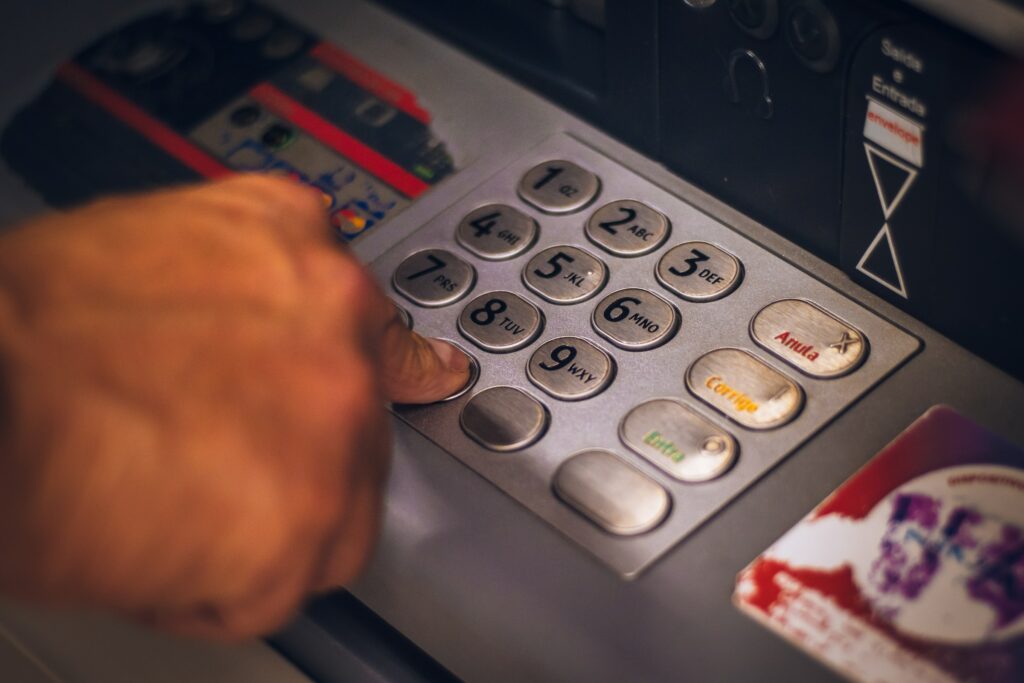

How Long Does a Bank Transfer Take? A Detailed Look at Processing Times

As Seen On
Moving money between bank accounts is a common need for many people. Whether you’re paying your rent, splitting the dinner bill with friends, or reimbursing your co-worker for those concert tickets, bank transfers allow you to send and receive funds securely. But a perennial question arises when moving money – just how long do bank transfers take?
In today’s world of instant Venmo payments and lightning-fast PayPal transfers, the 1-3 business day wait for a standard bank transfer can feel like an eternity. But rest assured, there are faster options if you need more urgent access to your funds.
Let’s dive into the factors impacting bank transfer times, how long does a bank transfer take to hit your account and some speedier alternatives when you’re in a pinch.

How Long Does a Bank Transfer Take?
For transfers between accounts at the same bank, whether checking, savings, or credit card accounts, the transfer is usually instantaneous. The funds are immediately debited from one account and reflected in the other. Easy peasy.
But when money needs to travel between banks, transfer times slow down. Most domestic bank transfers take 1-3 business days to fully process.
If you submit a transfer on Monday, the funds may not be available until Thursday or Friday. While still faster than mailing a paper check, these 3-day waits can feel like an eternity when bills are due, or you need cash fast.
Why Do Bank Transfers Take So Long?
So, what exactly causes this delay when moving money between banks? There are a few key steps that add time to a standard bank transfer:
- ACH Transfers: Most bank transfers rely on the Automated Clearing House or ACH network. This system processes batches of electronic transfers overnight, so funds take at least one full business day to transfer, even domestically.
- Verification Steps: Both the sending and receiving banks need to verify account details and validate the transaction before funds are released or deposited. It also adds processing time.
- Compliance Checks: Banks must screen transfers for fraud, money laundering, and other suspicious activity. While vital for security, these compliance checks do slow things down.
- Batch Processing: As mentioned above, ACH transfers are processed in batches at regular intervals rather than instantly. This batch processing adds a delay between when a transfer is initiated and when it is finalized.
So, in summary, bank transfers aren’t instant, like swiping a credit card or tapping a mobile wallet, because funds must pass through an intermediary network, undergo verification, pass compliance checks, and wait for batch processing. These steps ensure security but also introduce delays.
Faster Alternatives for Urgent Transfers
When you need access to funds quickly, there are a few alternatives that can speed up transfer times:
- Wire Transfers: Wires transmit funds immediately between banks. However, they typically come with fees of $10-$50 per transfer, making them impractical for smaller amounts.
- Same Day ACH: This newer ACH transfer option allows some domestic transfers to be completed within one business day rather than 3. But both banks must offer the Same-day ACH availability.
- PayPal or Venmo: For quick transfers between individuals, tools like PayPal and Venmo offer instant transfers. Just keep in mind that withdrawing funds from these apps to a bank account still takes the standard 1-3 days.
- Cash Pickup: Services like Western Union and MoneyGram allow you to send funds for cash pickup at partner locations in minutes. It works well when the recipient needs physical cash immediately. Just know that fees apply.
So, in a pinch, services like bank wires, PayPal, Venmo, and cash pickup allow more urgent access to funds. But for recurring, everyday transfers, the standard 1-3 day transfer remains the most common option.
When Will My Bank Transfer Arrive?
Wondering exactly when you’ll see the money hit your account? Here are some general timelines to expect after initiating a standard U.S. bank transfer:
- Next Business Day: Transfers submitted before your bank’s daily cutoff time (usually late afternoon) will often arrive the next business day.
- 2-3 Business Days: Transfers submitted after the cutoff may take 2-3 days to arrive. Holidays and weekends don’t count towards transfer times.
- Longer for Large Transfers: Big dollar transfers above $100,000 can take extra time as banks verify the legitimacy of large sums.
- Up to a Week for International: Sending funds between countries can take 3-5 days with some banks and up to a full week with others. More steps are required for international compliance.
Checking your bank’s website for their specific funds availability policy can provide more precise timelines. But in general, 1-3 days is the standard wait time for bank transfers in the U.S.
Pro Tips to Avoid Delays
To keep bank transfers flowing smoothly, follow these tips:
- Verify Details: Double-check account and routing numbers to avoid rejections. Nicknames rather than legal names can also cause issues.
- Watch Cutoff Times: Initiate transfers before daily deadlines to get the quickest turnaround.
- Link Accounts: Linking accounts on PayPal, Venmo, and other apps adds convenience. Just be sure to withdraw funds when needed.
- Track Holidays: Bank transfer times pause for holidays and weekends. Plan around closures for the fastest processing.
- Communicate with Recipients: Let recipients know when funds are on the way and when to expect them.
The Takeaway
While not as instant as some newer payment tech, bank transfers remain a secure way to move money. Understanding the 1-3 day processing timelines, watching for cutoff times, and using faster alternatives like PayPal or wire transfers when you need urgent access can help manage the wait.
With some planning, bank transfer delays need not cause headaches, even in a world accustomed to real-time payments. Next time you send funds, just be sure to communicate timelines with recipients and have patience as the wheels of the banking industry turn.
Konger
Up until working with Casey, we had only had poor to mediocre experiences outsourcing work to agencies. Casey & the team at CJ&CO are the exception to the rule.
Communication was beyond great, his understanding of our vision was phenomenal, and instead of needing babysitting like the other agencies we worked with, he was not only completely dependable but also gave us sound suggestions on how to get better results, at the risk of us not needing him for the initial job we requested (absolute gem).
This has truly been the first time we worked with someone outside of our business that quickly grasped our vision, and that I could completely forget about and would still deliver above expectations.
I honestly can't wait to work in many more projects together!
Disclaimer
*The information this blog provides is for general informational purposes only and is not intended as financial or professional advice. The information may not reflect current developments and may be changed or updated without notice. Any opinions expressed on this blog are the author’s own and do not necessarily reflect the views of the author’s employer or any other organization. You should not act or rely on any information contained in this blog without first seeking the advice of a professional. No representation or warranty, express or implied, is made as to the accuracy or completeness of the information contained in this blog. The author and affiliated parties assume no liability for any errors or omissions.

